Quagga Mussels – A Public Service Announcement
- At October 03, 2013
- By Kim
- In Kim's posts, Local Happenings
 3
3
On a recent walk along the shoreline, I came across a scene that abruptly changed my thoughts from the beauty of the undisturbed lakeshore on which I walked to the undeniable evidence that the ecosystem of the Sleeping Bear Dunes and many others around the Great Lakes are significantly threatened. It was enough to shake me. So I hope you will humor me with this out of the ordinary post.
The “scene” at first appeared to be the normal sandy white shores, until the crunch under my feet made me realize it was not sand at all. Rather, I was crunching my way on top of giant depositories of shells. I had heard of zebra mussels and thought these were them, but after inquiring with a neighbor in the know I was set straight. Apparently zebra mussels are so yesterday. Today’s mussel is the quagga. A quagga you might ask (as I did)? They get their name from an extinct subspecies of zebra that looked like this. The quagga zebra had brown stripes and less of them than the black and white zebra we are familiar with. The quagga is a deserved namesake as the mussels are also paler and less striped than their cousins the zebra mussels. Coloring and stripes are where the similarities end though; the quagga mussels are far from extinct. In fact, estimates back in 2011 put the number of quaggas blanketing the bottom of Lake Michigan at 950 trillion, weighing in at 500 million pounds. Yes, that’s right; more than the entire weight of fish in Lake Michigan. Of the mussels in the lake, they make up 99%, zebras a meager 1%.
All these mussels (native to the Ukraine and first spotted in Lake Michigan in 1997) are in official terms causing a “collapse of the ecosystem”. They eat Lake Michigan’s other inhabitants’ food source but unfortunately are not a food source to anyone else. These little mollusks also filter the water. Although this has allowed for wonderful tourism photos in recent years as clarity has increased twofold; it provides an unfriendly home for the native fish in addition to allowing for the growth of algal blooms. You may be familiar with the giant blooms threatening the tourism and fishing industries around Lake Erie, as well as the threat to Ohioans drinking water? Yes, that green stuff you’ve seen washing ashore here could get worse, resulting in botulism outbreaks killing off fish and even my beloved shorebirds. Now, that is over the line quaggas! (In fact all you knit bombers out there; I have a better task for you than dressing the local stop sign up as a flower. Message me about a knitting bee to craft protective bird booties).
On a serious note, our government is currently shut down as lawmakers battle about spending. Representatives have been and will again be asked to consider measures about the protection of the Great Lakes. Congress recently saw an act pushed by various state lawmakers and wildlife organizations to add quagga mussels to the injurious species list; a list on which zebra mussels claim membership already. Few expect the measure, that would allow additional funding, to pass. There are other battles for government money to fight off Asian carp, something that needs as little as 20 fish to establish a footing in the Great Lakes. These “invasives” can be abstract as you hear about them and quite easy to overlook as a pressing issue needing funds among so many others with which our elected officials deal. Then one day you may find yourself like I did; walking along our beloved lakeshore and that abstract concept will be right under your nose (or feet as it may) in all its concreteness.
It may be too late to be the squeaky wheel, but with some funding and research perhaps there is a solution or lesser collapse to be had? Here’s to hoping. Otherwise the people behind the “Got Sand?” bumper stickers might want to put in a change order for “Got Quaggas?”
- Rock hunting just got a little more difficult
- A 12″ shelf of quagga shells in the National Lakeshore
- A small group of zebra mussels next to the quaggas
- Holy quagga mussels!

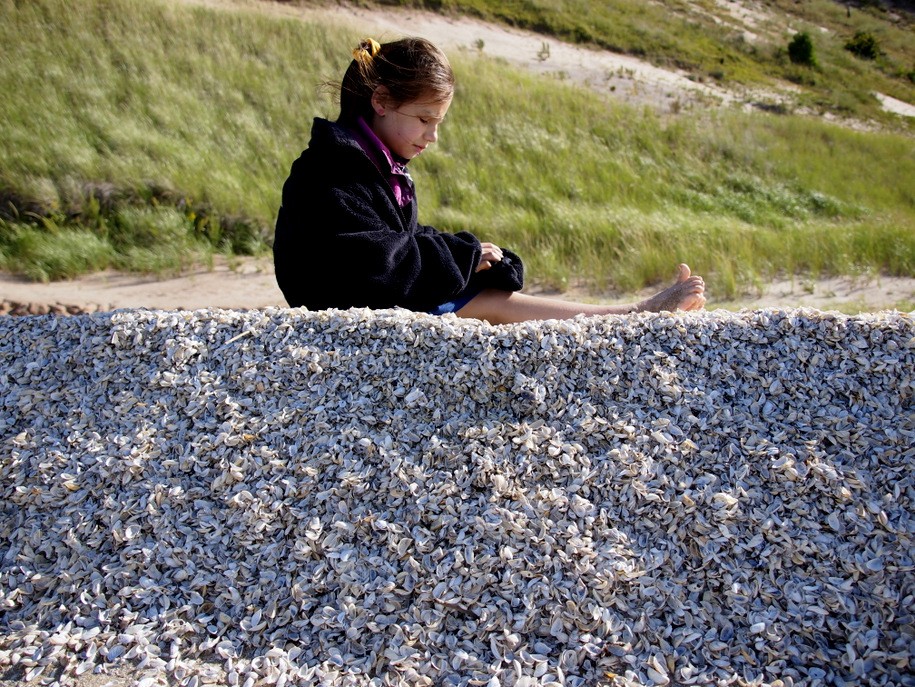
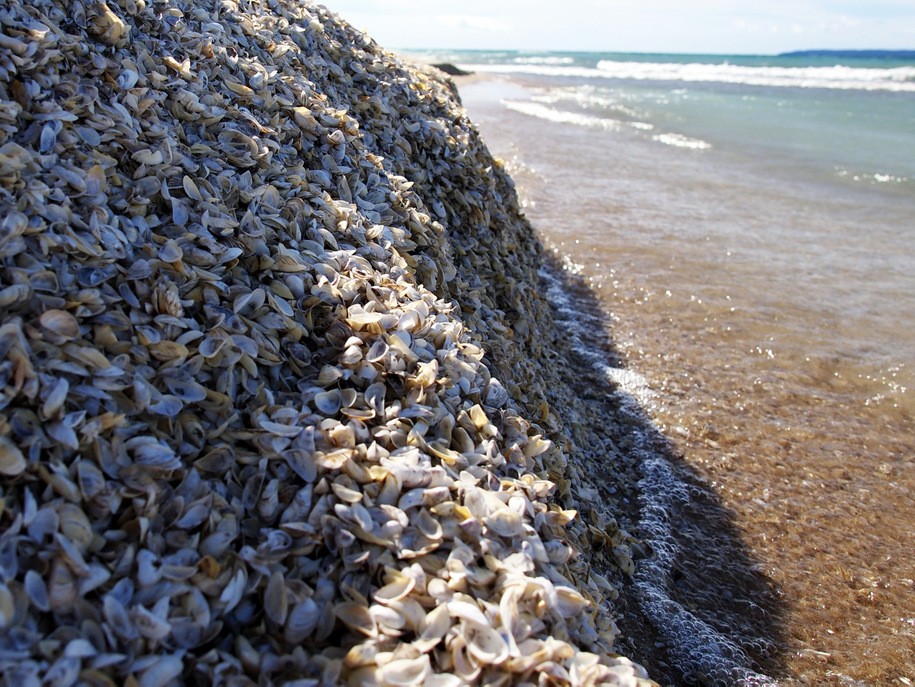
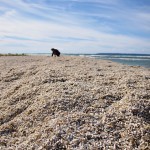
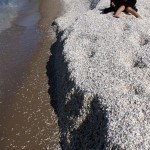
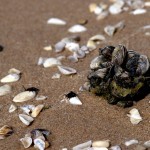
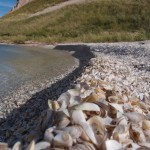


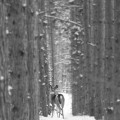
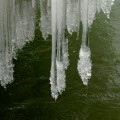
Ellen Schultz
Oh my gosh! This is truly shocking! I had no idea about this specific invasive species except for hearing the name a couple times and I certainly never imagined to see photos like these. This is depressing but thank you for sharing.
Kim
It is upsetting for sure…almost makes me sad to see the crystal clear waters now of Lake Michigan. Thanks for the comment Ellen.
Sabrina A Shuman
Hi Kim,
I would love to use this image of quagga and zebra mussels (the second image on this page) for Wayside Markers I am designing to be placed on the Muskegon Channel pier. Is this any way I could use this image? If so, can you provide me with a high-resolution version of the image?
Thanks!
Sabrina